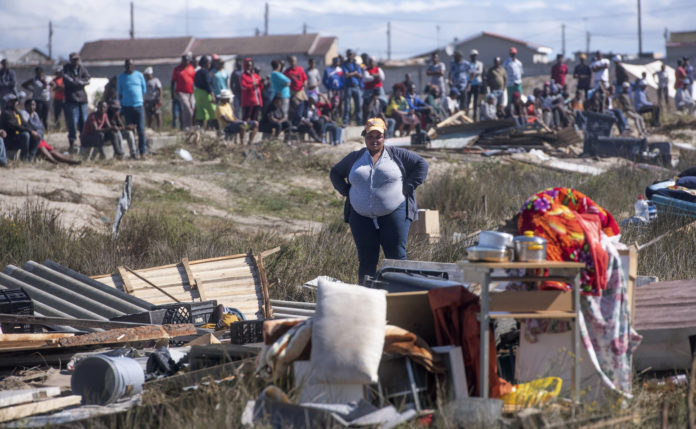
The City of Cape town’s draft Unlawful Occupation by-law closed for public comment on July 31. Several social housing organisations including Ndifuna Ukwazi (NU) have urged the public to reject the bylaw coming into effect. NU has described the bylaw as a shocking assault on poor and working class families.
What is the By-Law?
The Unlawful Occupation by-law will provide the city with guidance to manage and prevent unlawful (illegal) occupation of land and buildings in Cape Town. The by-law aims to fill legislative gaps to reduce risks to the city, private landowners, commuters and other stakeholders. This is while adhering to national legislation.The following is covered in the by-law, among others, managing settlements, and responding to and preventing unlawful occupation.
Read more: Inequality of South African proportions
Housing Activist response to the By-Law
NU issued a statement on July 31 in which civil society and former United Nations (UN) housing experts condemned the bylaw.
The former UN experts on the right to adequate housing, Miloon Kothari, Raquel Rolick and Leilani Farha said those occupying the land do so because the city does not provide adequate housing in Cape Town. Unhoused people either sleep on the streets, or build their own housing. Imposing criminal charges onto people in these circumstances is discriminatory; their right to housing is denied and their remedy is punished harshly, the experts said.
NU has condemned the draft bylaw citing that it would criminalise homelessness. Mpho Raboeane, an attorney from NU, wrote that the draft bylaw operates within a system of historical dispossession, inequality and landlessness.
Raboeane further wrote that the city’s approach to the bylaw is of the singular view of property ownership rights. “The bylaw operates within a context of discriminatory legacies, and will reintroduce apartheid era legislation. The draft bylaw also gives a set of wide ranging powers to vaguely defined officials, to remove and demolish informal dwellings without a court order,” said Raboeane.
Raboeane cited section 26(3) of the South African constitution.
“No one may be evicted from their home, or have their home demolished, without an order of court made after considering all the relevant circumstances. No legislation may permit arbitrary evictions.”
City of Cape town responses to unlawful occupations
Malusi Booi, mayoral committee (Mayco) member for human settlements said there has been a spike in unlawful occupations since the start of the March 2020 Covid-19 lockdown.
Evictions and demolitions of people’s land and homes were not allowed under lockdown alert level 5 in 2020, unless an order of the court was granted. The City of Cape Town carried out evictions and shack demolitions during the nationwide lockdown.
Protests
Residents of Pola Park, an informal settlement, protested against the city of Cape Town from July 9. City officials demolished shacks under a directive from the Human Settlements department resulting in violent clashes between the two groups.
Community leader Sonwabile Ntondini said, the city comes into the community at any time to beat and humiliate them. “We were told they didn’t have the right to come and demolish our homes like this, yet here they are. We didn’t move here because we wanted to, we had no choice after losing our jobs to Covid-19,”said Ntondini.
A group of Vrygrond residents protested on July 14 after a chicken coop was demolished by the City of Cape Town’s Anti-Land Invasion Unit. Resident and local farmer Michael Khumalo said the coop was being used for a six-week program to train youth how to farm chickens. Khumalo said that the City’s actions were “irresponsible” in the current economic climate.
JP Smith, Mayco member for safety and security said that the protest was a response to the removal of structures erected in violation of a court order. City of Cape Town’s Luthando Tyhalibongo said the city acted within the court order(s) to prevent the further unlawful occupation of this land.
Tyhalibongo said the site is on City-owned land and it is not eligible for housing as it forms part of the False Bay Nature Reserve. “The City has had ongoing consultations with the group over a number of years about the ongoing attempts to illegally occupy this land,” Tyalibongo said.
Read more: Affordable housing solutions can prevent flooding disasters
NU and Reclaim the City will be hosting a public meeting on August 11 to address the little progress the City of Cape Town has made in affordable housing development.
The city of Cape Town could not be reached for comment today on the housing activist statement.
Read more: Basic Income Grant funding, explained








